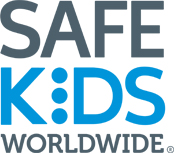New Research Report by Safe Kids Worldwide Reveals Surprising Ways Kids are Getting into Medicine And What Parents Can Do to Protect Them
Washington, D.C. – Every day, kids surprise their families by getting into medicine. There are more than 47,000 children under age 6 seen in emergency rooms every year for medicine poisoning - that’s 5 children every hour. A new research report from Safe Kids Worldwide reveals common misconceptions families have about how to protect children from medicine poisoning and highlights simple actions they can take to help prevent frantic calls to the Poison Help number, frightening trips to the ER and fretful hours spent bedside.
The new report, “Keeping Kids Safe Around Medicine: Insights and Implications,” provides updated trend data as well as results from several years of research done by Safe Kids Worldwide with support from Johnson & Johnson Consumer Inc. Insights featured in the report were gleaned from analyses of poisoning data, focus groups and surveys with parents and grandparents from 2012 to 2019.
Five Things Parents Need to Know to Keep Kids Safe Around Medicine
Most families know to store medicine out of reach of children, but many parents are surprised to discover they need to think about medicine safety in new or different ways.
- Where Medicine is Stored vs. Where Medicine is Kept. Most families have a safe place in the home where they store medicine they don’t use every day, but they may keep often-used medicine handy and not be thinking about the safety factor. Kids are getting into medicine in purses, in nightstands, on counters, in drawers – places kids are drawn to explore.
- Child-Resistant vs. Child-Proof. While a child-resistant medicine container can slow down a child working to open it, it is not childproof. Families are often surprised by how quickly their little one can get into a child-resistant container.
- What You Think Your Kid Can Do vs. What Your Kid Can Do. Every parent knows that “oh!” moment when their child does something for the first time. It may be a proud moment, or it may be a frightening wakeup call. Stories about kids getting into medicine often start with that moment of surprise, “I didn’t know my child could reach up there!”
- Candy vs. Medicine. To a little explorer, candy and medicine can look alike, so it is especially important to keep all medicines and vitamins out of children’s reach and sight.
- Your Home vs. Their Home. Now that you have your household medicines stored safely, be on the alert for medicines visitors bring in, or medicines in homes you are visiting.
Simple Steps to Prevent Kids from Getting into Medicine
- Keep all medicine out of children’s reach and sight, even medicine you take every day. Kids are naturally curious and can easily get into things, like medicine, if they are kept in places within their reach.
- Choose child-resistant packaging whenever possible. If someone in your home is using pill boxes or other containers that are not child-resistant, it’s even more important to store these out of children’s reach and sight.
- Use reminder tools to help keep track of medicine. Instead of keeping medicine on the counter or a nightstand, set a reminder in your phone or use a medicine schedule to remember when to give and take medicine.
- Keep medicine safety on your child-proofing checklist. As your child learns new skills and becomes more mobile, anticipate that you may need to continue to assess and change where you keep medicine to avoid alarming surprises.
- Save the Poison Help number in your phone and post it visibly in your home for caregivers: 1-800-222-1222. Specialists at poison control centers provide free, confidential, expert medical advice 24 hours a day. They help with poison emergencies and can also answer questions about medicine safety.
For the full list of surprising findings, visit Safekids.org.
For more tips on how to protect your children at home, at play and on the way, visit www.safekids.org.
National Poison Prevention Week is March 15-21, 2020.
Download the report and infographic created by Safe Kids Worldwide with support from Johnson & Johnson Consumer Inc.
ABOUT SAFE KIDS WORLDWIDE
Safe Kids Worldwide is a nonprofit organization working to protect kids on the road, at home and at play. Preventable injuries are the number one cause of death for children in the United States. Throughout the world, almost one million children die of an injury each year, and almost every one of these tragedies is preventable. Safe Kids works with an extensive network of more than 400 coalitions in the U.S. and with partners in more than 30 countries to reduce traffic injuries, drownings, falls, burns, poisonings and more. Since 1988, Safe Kids has helped reduce the U.S. childhood death rate from unintentional injury by nearly 60 percent. Working together, we can do much more to protect kids. Join our effort at safekids.org.
